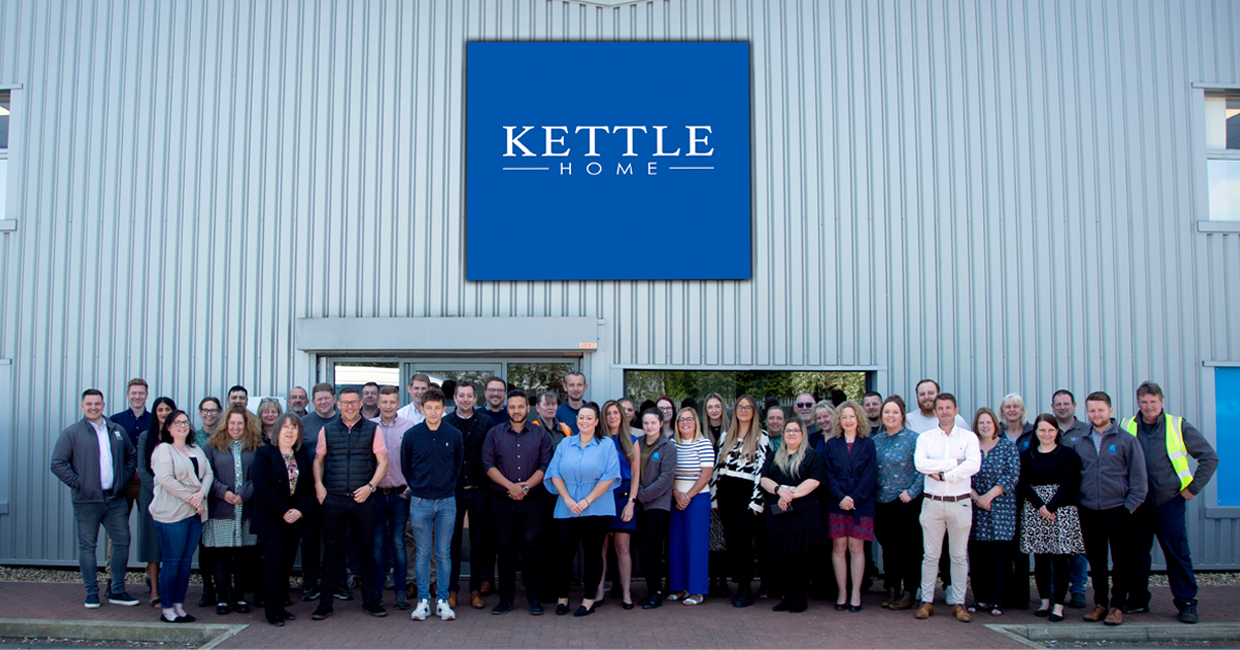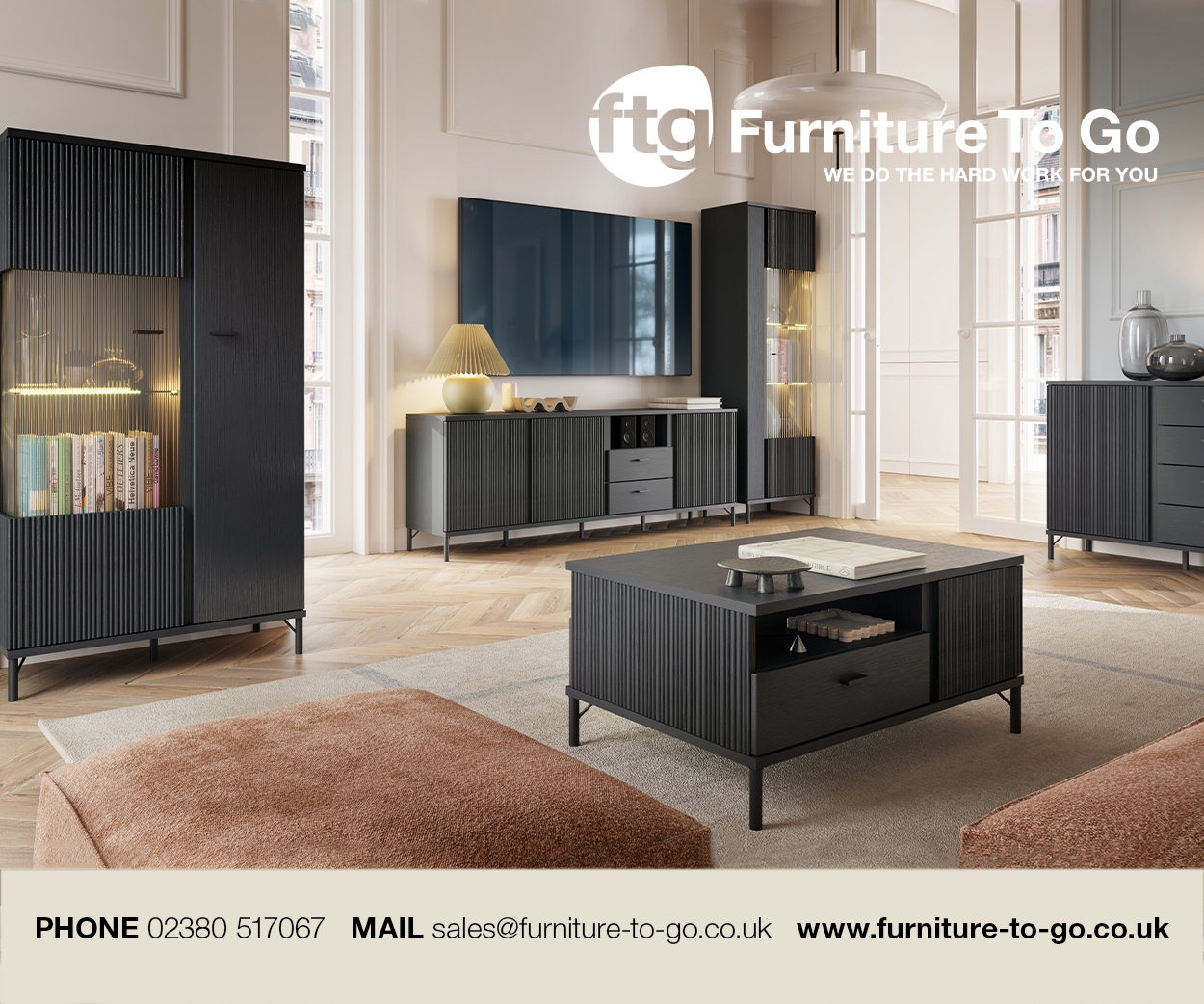In March this year, 20-year-old cabinet supplier Kettle Interiors entered administration, when the weight of price increases, driven by crisis after crisis, finally proved too much to bear. In its place, new company Kettle Home ensured some continuity. Here, in the company’s first major statement following the management buyback, CEO Ian Kettle explains what caused the collapse, how events transpired, and what the future looks like for his namesake’s new iteration …
To start with, can you provide some context of the size and heritage of the business prior to its being put into administration this March?
My family have been in the furniture industry for over 30 years, establishing Kettle Interiors UK in 2003 and specialising in the wholesale of cabinet furniture. Predominantly importing from the Far East – in particular Vietnam and China – we established ourselves as a market leader in the UK furniture wholesale sector. We had developed a customer base of hundreds of active accounts, supplying over 2000 individual product lines.
Founded and initially led by my late dad, John, the day-to-day running of the business passed to me some 15 or so years ago. Furniture is in my blood and it’s an industry that I love.
What were the first indications that the business was in trouble?
Until the Covid pandemic in 2020, Kettle Interiors was a stable and profitable company which consistently outperformed the wider market, growing both turnover and profit YoY. But, as with many businesses, Covid presented huge challenges for Kettle Interiors. The first lockdown period in March 2020 caused a significant drop in trade which resulted in a depletion of cash reserves and reliance on Government schemes including CIBLS and CJRS.
After the initial lockdown, sales rebounded strongly, but problems with the supply chain soon began to cause issues. The company experienced prices increases from all the overseas suppliers who cited increases in the costs of raw materials including timber, lacquer, packaging materials and internal logistics. Along with the drop in value of the GBP against USD, this caused a sharp rise in the product cost, which adversely effected margin.
By far the biggest issue came in late 2020 when the price of shipping began to increase exponentially. In the space of 12 months, rates increased from a pre-Covid price of $1400 per 40ft HC to over $16,000. Given the bulky nature of the product Kettle sells, this caused huge increases in the landed cost of the product. Some items such as chairs increased in cost by over +100%.
The company quickly began to raise selling prices, but due to contractual obligations and an extremely large back order book, the rate of increase in the sales price could not keep pace with the increase in the cost of the product. Throughout 2021/22, Kettle placed customer service at the forefront of our strategy and honoured all orders at the price they were placed. The battle continued, though, with a record rise in oil triggering a global energy crisis, in turn throttling consumer spend in our industry and further impacting the running costs of the business (namely the running of a vehicle fleet and the business’ own energy costs).
Coupled with the increased in freight and product cost, the furniture market saw a notable downturn in March 2022. This was caused by a combination of the Russia/Ukraine conflict, and also the lifting of Covid regulations, which prompted consumers to spend their money in different sectors. This drop in demand aligned with a large influx of stock, leaving the company with significant excess inventory. The stock produced to fulfil the forecasted demand had a huge impact on costs due to lack of storage space, so initially the business was penalised by demurrage and quay rent charges, followed by short- and medium-term storage costs, resulting in inefficient, costly operations across 14 separate storage sites.
From the middle of 2022, our board worked tirelessly to reduce debt and stabilise the company. In December 2022, the company sold its main warehouse unit in a sale and leaseback agreement. The directors also injected personal loans into the company to sure up finances.
In February 2023, the board of directors sought external financial advice, as it had become clear that the situation was not retrievable and that the company was insolvent. After very careful consideration, the directors made the difficult decision to place the company into voluntary administration on 24th March this year.
Can you describe the steps leading up to and during the buyback?
The core group of directors were keen to try and secure as many jobs as possible and to create a new business drawing on the past success of Kettle and their combined experience. Once Kettle Interiors was under the control of the administrators – and separate to that process – Kettle Home was formed.
The only way we could form an operating company in time was to adopt the credentials of a business formed in October 2022. Kettle Home then launched a bid for the goodwill and some of the assets of Kettle Interiors and, as you know, we were successful in securing this. This gave us the platform to move forward and establish Kettle Home.
What was the hardest part of the process?
The toughest part of the process was informing our hard-working staff that Kettle Interiors was entering administration and that they were subsequently being made redundant. Many of them had been with us for a long time, and had played a vital role in the company’s success. It was also difficult to break the news to our customer base, many of whom we have done business with for a great number of years. At this point, all our futures were uncertain – we didn’t yet know that the possibility of Kettle Home was an option.
Read the rest of our interview with Ian in October's issue.







